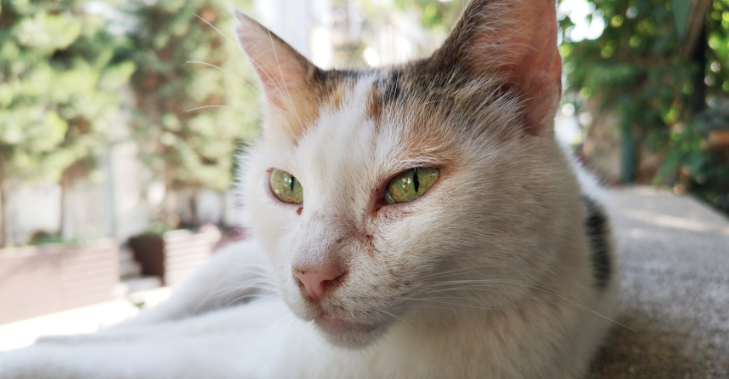
Toxoplasmosis is a disease caused by the parasite Toxoplasma gondii. It is quite common, affecting cats, humans, and many warm-blooded animals.
Toxoplasmosis in Cats
Cats acquire Toxoplasmosis through the ingestion of prey or raw meat that is infected. The parasite gets released into the digestive system, reproduces, and new eggs are made. The cat then excretes the eggs. There are millions of eggs in the feces of an infected cat. The eggs develop three to ten days following infection. The parasite can sometimes spread beyond the digestive system, working its way into the muscle or brain. Wild and domestic cats are typically the only definitive hosts for Toxoplasmosis.
Toxoplasmosis in Other Animals
Human and other warm-blooded animals are intermediate hosts that become infected when they come in contacted with the feces of an infected cat or when eating raw or undercooked meat that is infected. Humans need to be aware of areas such as litter boxes, gardens, soil, and other places where a cat may defecate. The parasite can live in some environments for a whole year. Once an intermediate host becomes infected, the parasite could stay with them for life.
Potential Signs of Toxoplasmosis in Cats
Typically there are no mild signs of infection. However, sometimes the parasite can cause the following, especially if more severe…
– fever
– loss of appetite
– lethargy
– difficulty breathing
– eye issues
– loss of coordination
– more sensitive to touch
– seizures
– muscle weakness
– digestive issues
Potential Signs of Toxoplasmosis in Humans
Signs of Toxoplasmosis in humans can also be absent, but watch for the following…
– fever
– fatigue
– headaches
– body aches
– swollen lymph nodes
**pregnant women should avoid cleaning litter boxes
Natural Remedies for Toxoplasmosis
The following herbal remedies are great options for humans and pets. Both remedies are anti-parasitic and known for helping the body detox this specific parasite.
– Wormwood
– Berberine
If you are concerned that you or your pet may be irritated by a parasite, contact PetMedella at 612-812-9121 or email us at info@petmedella.com.
